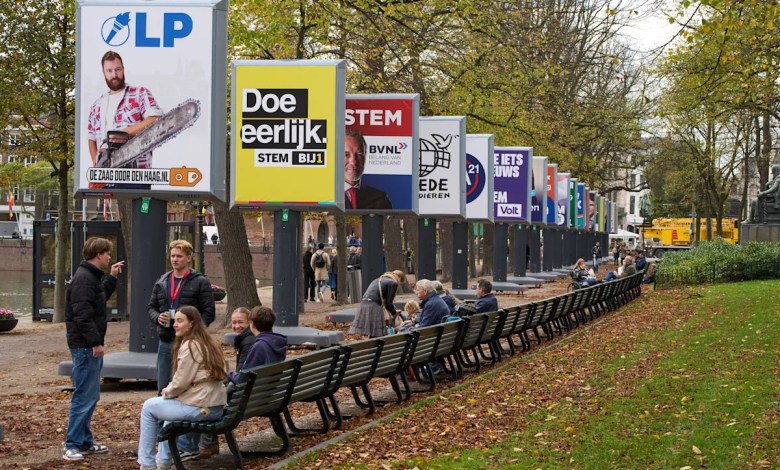Dutch voters head to the polls in an election focused on housing and Wilders

THE HAGUE, Netherlands (AP) — Dutch voters will head into a tight general election on Wednesday after a campaign focused on immigration, the housing crisis and whether the party will work with anti-Islam lawmaker Geert Wilders if the Liberals repeat their stunning victory two years ago.
The vote comes against a backdrop of deep polarization in the country of 18 million, violence at recent anti-immigration rallies in The Hague and protests in various countries over new asylum seeker centers.
Polls show Wilders’ party, which has called for a complete halt to asylum seekers entering the Netherlands, is still on track to win the most seats in the 150-seat lower house, but other more moderate parties are closing the gap, with pollsters warning many people are waiting until the last minute to decide who to vote for.
Polls open at 7:30 a.m. and close at 9 p.m. Broadcasters publish exit polls immediately after voting closes and update them half an hour later.
Voters can cast their ballots at venues such as town halls and schools, as well as at historic windmills, churches, the zoo, a former prison in Arnhem and the iconic Anne Frank House museum in Amsterdam.
After the results are announced, the parties must negotiate the formation of the next coalition government in a country where proportional representation all but guarantees that no one party can govern alone.
Mainstream parties have ruled out working with Wilders, arguing that his decision to undermine the outgoing four-party coalition earlier this year in a dispute over the crackdown on immigration highlighted him as an untrustworthy coalition partner.
Rob Jetten, leader of the center-left D66 party, said in the final televised debate that his party wanted to control immigration but also take in asylum seekers fleeing war and violence. As the campaign progressed, the party’s poll numbers continued to rise.
He told Wilders that voters could “choose again tomorrow to listen to your raging hatred for 20 more years, or to come with positivity and simply get to work, address this problem and fix it.”
Former European Commission Vice President Frans Timmermans, now leader of the Labor and Green-left center-left bloc, also took aim at Wilders in the final debate, saying he “looks forward to the day – and that day is tomorrow – when we can put an end to the Wilders era.”
Wilders rejected suggestions that he had failed to deliver on his 2023 campaign promises despite being the largest party in parliament, and blamed other parties for blocking his plans.
“If I were prime minister – which I won as leader of the largest party – then we would roll out this agenda,” he said.
Wilders gave up the chancellorship in negotiations after the last election because he did not have the support of potential coalition partners.
The election could see the emergence of the reformist New Social Contract party, which won 20 seats in the last election and joined the outgoing coalition and has all but disappeared from the Dutch political landscape, with polls predicting it could lose all or almost all its seats. The party’s decline in support is an apparent backlash against its decision to form a coalition with Wilders after its popular leader Pieter Omtzigt quit politics in April due to mental health issues.



